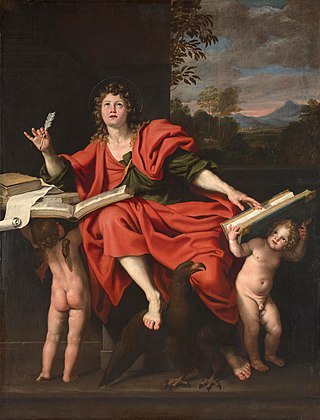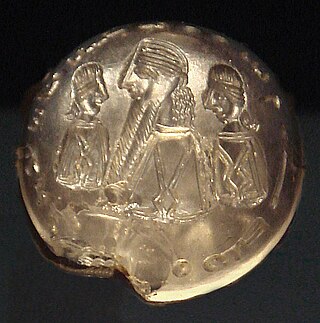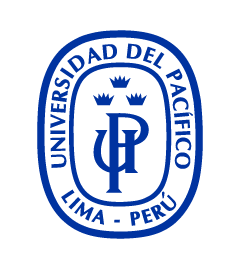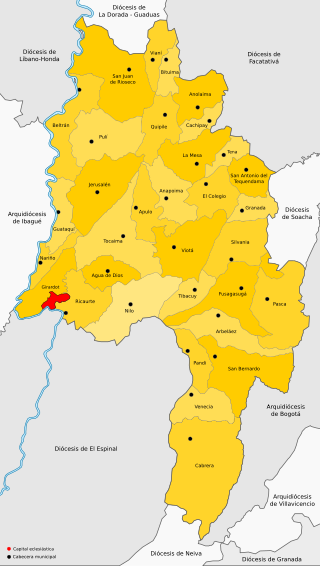
Christ, used by Christians as both a name and a title, unambiguously refers to Jesus. It is also used as a title, in the reciprocal use "Christ Jesus", meaning "the Messiah Jesus" or "Jesus the Anointed", and independently as "the Christ". The Pauline epistles, the earliest texts of the New Testament, often refer to Jesus as "Christ Jesus" or just "Christ".
Common Era (CE) and Before the Common Era (BCE) are year notations for the Gregorian calendar, the world's most widely used calendar era. Common Era and Before the Common Era are alternatives to the original Anno Domini (AD) and Before Christ (BC) notations used for the same calendar era. The two notation systems are numerically equivalent: "2023 CE" and "AD 2023" each describe the current year; "400 BCE" and "400 BC" are the same year.

The First Epistle of John is the first of the Johannine epistles of the New Testament, and the fourth of the catholic epistles. There is no scholarly consensus as to the authorship of the Johannine works. The author of the First Epistle is termed John the Evangelist, who most modern scholarsbelieve is not the same as John the Apostle. Most scholars believe the three Johannine epistles have the same author, but there is no consensus if this was also the author of the Gospel of John.

The Society of Jesus, also known as the Jesuit Order or the Jesuits, is a religious order of clerics regular of pontifical right for men in the Catholic Church headquartered in Rome. It was founded in 1540 by Ignatius of Loyola and six companions, with the approval of Pope Paul III. The society is engaged in evangelization and apostolic ministry in 112 nations. Jesuits work in education, research, and cultural pursuits. Jesuits also conduct retreats, minister in hospitals and parishes, sponsor direct social and humanitarian ministries, and promote ecumenical dialogue.

The Territory of Idaho was an organized incorporated territory of the United States that existed from March 3, 1863, until July 3, 1890, when the final extent of the territory was admitted to the Union as Idaho.

Mani was an Iranian prophet and the founder of Manichaeism, a religion most prevalent in late antiquity.

In Christianity, disciple is a dedicated follower of Jesus. This term is found in the New Testament only in the Gospels and Acts. In the ancient world, a disciple is a follower or adherent of a teacher. Discipleship is not the same as being a student in the modern sense. A disciple in the ancient biblical world actively imitated both the life and teaching of the master. It was a deliberate apprenticeship which made the fully formed disciple a living copy of the master.

The Ibero-American University, also referred to by its acronym UIA but commonly known as Ibero or La Ibero, is a private, Catholic, Mexican higher education institution, sponsored by the Mexican province of the Society of Jesus. In 2009, the UIA received the SEP-ANUIES Prize as the best private university in Mexico. The Ibero's flagship campus is located in the Santa Fe district of Mexico City.
Association of Universities Entrusted to the Society of Jesus in Latin America (AUSJAL) (Asociación de Universidades Confiadas a la Compañía de Jesús en América Latina) comprises the thirty-three Jesuit universities in Latin America, from Mexico to Argentina and including the Dominican Republic of the Antilles.

Comillas Pontifical University is a private Catholic higher education institution run by the Spanish Province of the Society of Jesus in Madrid, Spain. The university is involved in a number of academic exchange programmes, work practice schemes and international projects with over 200 institutions of higher education in Europe, Latin America, North America and Asia.

Universidad del Pacifico (UP) is a private university in the Jesús María District of Lima, Peru.
El Nuevo Herald is a newspaper published daily in Spanish in Southeast Florida, United States. Its headquarters is in Doral. El Nuevo Herald's sister paper is the Miami Herald, also produced by the McClatchy Company.

José Simeón Cañas Central American University, also known as UCA El Salvador, is a private Catholic university with nonprofit purposes in San Salvador, El Salvador. It is operated by the Society of Jesus.

Saint Thomas University is a Roman Catholic university located in Bogotá, Colombia. It is the oldest Colombian university, founded in 1580 by the Dominican Order. It has campuses in Bucaramanga, Tunja, Medellín, and Villavicencio, and offers distance education.

The Roman Catholic Archdiocese of Barranquilla is an archdiocese located in the city of Barranquilla in Colombia.

The Roman Catholic Diocese of Girardot is a diocese located in the city of Girardot in the Ecclesiastical province of Bogotá in Colombia.

Christians are people who follow or adhere to Christianity, a monotheistic Abrahamic religion based on the life and teachings of Jesus Christ. They form the largest religious community in the world. The words Christ and Christian derive from the Koine Greek title Christós (Χριστός), a translation of the Biblical Hebrew term mashiach (מָשִׁיחַ). While there are diverse interpretations of Christianity which sometimes conflict, they are united in believing that Jesus has a unique significance. The term Christian used as an adjective is descriptive of anything associated with Christianity or Christian churches, or in a proverbial sense "all that is noble, and good, and Christ-like." It does not have a meaning of 'of Christ' or 'related or pertaining to Christ'.

The Catholic University of Colombia is a private institution of higher education. It was founded in Bogotá, Colombia in 1970, notable in its early loyalty to Catholic church doctrine. The institution had more than ten thousand students in September 2019, of which the majority were undergraduates. The university has three campuses in the city of Bogota, a school, a language school, and a university campus in addition to being an office setting for students in Bogotá. It gives technical and technological careers. The three most important sites are in Bogota, Chapinero, and Teusaquillo — characterized by their historical and cultural value. Its entire campus distributed in such sites totals about 77.000m2 with 44.000 m2 of buildings and 33,000 m2 for building.
Centro Gumilla is a center for research and social action run by the Society of Jesus in Venezuela. It was founded in 1968 and is the first such centre created in Latin America under Pedro Arrupe to direct Jesuit efforts more toward the service of the poor.

Juan de Castillo was a Jesuit priest and missionary, and a martyr-saint of the Catholic Church. A Spaniard, he was one of the first to labor at the Jesuit reductions in Paraguay.
















